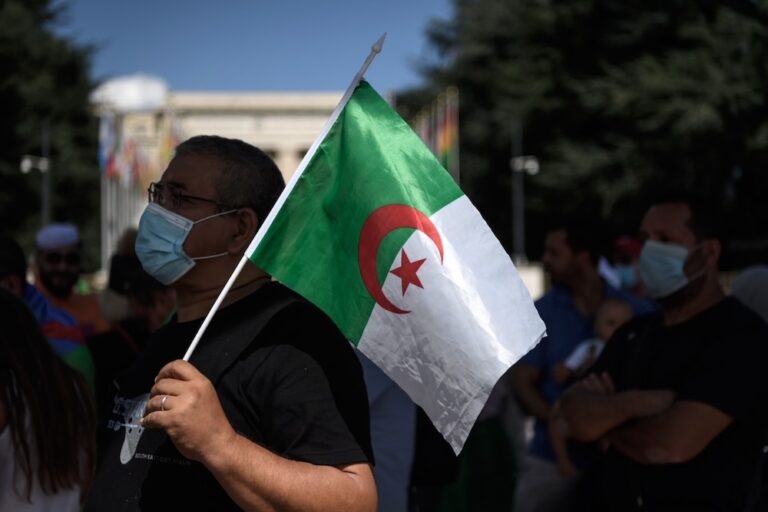In many countries, restrictions on free expression remain in place, and are among the lasting legacies of the fears generated by the 9/11 attacks.
(CMFR/IFEX) – 10 September 2012 – The following is a CMFR Blog post:
9/11: Casualties of terror
By Luis V. Teodoro
AS IN past years, the 11th anniversary of the September 11, 2001 attacks on the World Trade Center in New York and on the Pentagon in Washington DC has been focused on their cost in lives lost and on those the victims left behind. The events of that day were recalled in US TV, for example, and the families of some of those who died interviewed, among other commemorative reports and feature stories.
Terrorist attacks do not distinguish between combatants and non-combatants, and instead rely on the use of indiscriminate violence to further the aims of those behind them by instilling fear in the targeted populations in the hope of convincing governments to accede to their political demands. Terrorism is the weapon of the desperate, an attempt at quick (and futile) solutions to long existing issues and problems.
Regardless of whatever justice or validity the cause behind the 9/11 attacks might have been, they were without doubt terrorist attacks, and were rightly condemned worldwide. Eleven years after 9/11 occurred, terrorism is still a threat, not so much to governments, as to the peoples of those countries where conflict persists, or which, for one reason or the other, are identified with either side of the wars, political crises and other flashpoints of violence that afflict much of the globe. The peoples of the world need to be reminded of terrorism’s cost in the lives of the innocent, the instability of societies, and its psychological costs, and every effort must be exerted not only to prevent all forms of terrorism but also to hold the perpetrators accountable.
In the aftermath of 9/11, the then administration of US President George W. Bush did announce that it would take a series of steps to punish the perpetrators, but invaded a country and overthrew a government that had nothing to do with it. The 2003 invasion of Iraq has since been described as both futile and counter-productive, turning a country that was neither coddling Al-Qaeda nor in possession of weapons of mass destruction into both fertile ground for homegrown terrorists as well as a magnet for foreign terrorists. At the same time, the most conservative estimates place the cost in civilian lives during both the attack on Iraq as well as the US occupation that followed at 100,000.
But if Iraqi civilians were the collateral damage of the US anti-terror campaign, so was free expression. In 2005, a special report by the International Federation of Journalists (IFJ) documented how various governments were using the war on terror as an excuse to restrict freedom of assembly, free expression and press freedom, reversing a trend towards liberalization that had been evident in many countries before 2001.
According to the IFJ report, in Kenya, for example, a “Suppression of Terrorism” bill was introduced which would have led to restrictions on freedom of assembly and free expression, and endowed security forces with immunity from accountability when “suppressing” terrorism, even as the concept of the latter was vaguely defined.
The bill was thankfully withdrawn, but in South Africa, a similar bill did pass Parliament. It requires journalists to reveal their sources, and everyone to report suspected terrorists. The same requirement for anyone to report suspected terrorists under pain of criminal sanction had earlier come into effect in Uganda through its own anti- terrorism act.
In Australia, anti-terrorist legislation took the form of laws restrictive of free expression and civil liberties. Under these laws journalists could be compelled to reveal the sources of their stories. Anti-terrorism legislation also restricts media scrutiny of the Australian security apparatus.
In Bangladesh, various organizations were banned on suspicion of terrorist activity, but human rights workers and student activists were also targeted for arrest and detention.
China particularly used anti-terrorism as an excuse to further restrict free expression and civil liberties, by, among other tactics, linking Muslim minority groups to international terrorist organizations like Al-Qaeda, shutting down mosques, surveilling Muslim communities, and compelling Muslims to attend “re-education” programs.
In the Philippines, the Human Security Act, which defines terrorism so loosely it can be applied even to non-violent acts such as the picketing of a public utility, is only one of the many threats to press freedom and free expression that the years following 2001 generated. Under the terms of the Act, journalists can be accused of abetting terrorism by interviewing suspected terrorists. The Arroyo administration also used anti-terrorism to label human rights and journalists’ groups “enemies of the State,” which in effect makes them legitimate targets for elimination by security forces.
In many countries, restrictions on free expression remain in place, and are among the lasting legacies of the fear and uncertainty the years immediately following the attacks of 2001 on the US generated. Although in the Philippines case the Human Security Act has seldom been invoked, it is nevertheless a threat that at any time can be used against free expression by a repressive administration. In commemorating the 11th anniversary of 9/11, we also need to recall, in addition to the cost in lives of that event, the cost to free expression of the campaign to identify the perpetrators of that outrage as well as potential terrorists and to hold them accountable.


